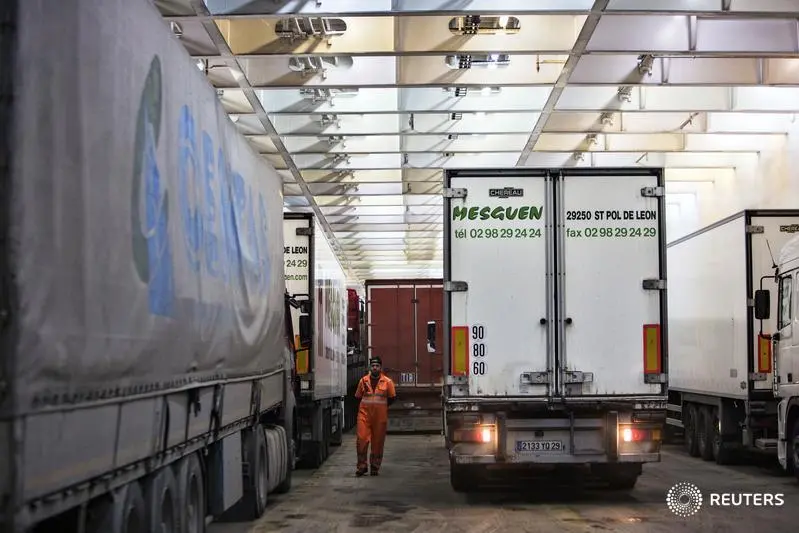PHOTO
AMMAN — Suspending the free trade agreement (FTA) with Turkey was good news for Jordanian industries, but traders cried foul as they claimed the decision was made abruptly and would have “serious” consequences on their businesses.
Traders said suspending the deal, which Jordan and Turkey signed in 2011, was “unfair”, while industrialists said the move was “much needed” to protect the industrial sector, which contributes about 25 per cent to the gross domestic product.
“Suspending the FTA was a mistake, as the decision was not based on studies or evidence that it has had a negative impact on the Jordanian economy or industries,” Jordan Chamber of Commerce (JCC) President Nael Kabariti told The Jordan Times on Tuesday.
However, Amman Chamber of Industry (ACI) President Senator Ziad Homsi disagreed, arguing that the decision was “extremely positive” as Jordan did not actually benefit from the deal.
Kabariti said suspending the deal and imposing customs fees on Turkish products would not help generate significant revenues for the Treasury as the majority of imports of Turkey are fuel derivatives, which are already exempted from customs fees.
“I believe that there has been no negative impact on industries that would necessitate freezing the deal… yet several traders will be harmed,” Kabariti said.
“There was an element of haste in taking decision at a time when many businesses already have agreements with Turkish traders. Some have rented warehouses and opened new stores in preparation for the ordered shipments. What is going to happen to them now?” Kabariti protested.
“There is a need for a sound study and a decision that is based on facts…Why should a free trade agreement be suspended? Is it just to protect some factories? asked Kabariti.
The deal entailed free trade between the two countries, transfering of Turkish technical know-how to Jordan and helping Jordanian industries develop and attract investment to the Kingdom. The decision to shelve the deal, which was announced Monday, will take effect in six months.
According to Homsi, the objectives of deal have not been realised.
Before 2011, Turkey’s annual exports to Jordan, excluding oil, reached $23 million, and customs fees were collected. After the deal went into effect, Turkish exports to Jordan, excluding oil, reached around $135 million annually, and no penny was paid in customs fees to the Treasury, said Homsi.
The FTA stipulated that Turkey increased its investments in Jordan, but “we have not seen any significant or major investments other than some small shops”, he added.
“Turkey did not also transfer technical expertise and know-how to improve the Jordanian industries,” he added.
Meanwhile, the sector leader argued, there are also several obstacles that face Jordanians industries seeking to enter the Turkish market, including administrative limitations and issues related to the registration of goods.
“These are all reasons that make suspending the deal a very positive decision that will support local industries, especially after the government held several meetings with the Turkish authorities but to no avail. I believe our government made the decision after trying out all other solutions,” Homsi added.
Khaled Habanka, a member of the Jordan Chamber of Commerce, underlined the extra burden on citizens as Turkish products have already seen price hikes.
He said that although it is true that the industrial sector was affected by the deal, it is their duty to improve their products, and protectionism is not the answer.
“The rule in the market is that it should be left for competition between products, not resorting to protectionism,” Habanka added.
Mohammad Bitar, vice chairman of the Jordan Chamber of Industry, begged to differ, stressing that Jordanian industries are “very competitive and their products are of high quality”, welcoming the government’s move.
“This is an excellent decision as the competition was not balanced or professionally ethical,” he said.
Jordan industrial sector exports around $7 billion worth of products annually. There are 18,000 industrial facilities that employ 250,000 workers and contribute some 25 per cent to the country’s economy, he noted.
“Taking these figures into account, it is very crucial to take the necessary decisions to support an industrial sector that produces high-quality products and whose facilities are operating in line with international standards,” Bitar said.
Anwar Kaluti, owner and manager of Arab Weavers Union Company PLC, agreed.
He told The Jordan Times that he was happy with the news about suspending the FTA.
“We understand why traders are unhappy about this news, but it is the industrial sector that employs thousands of Jordanians, contributes largely to the economy and pays costs for manufacturing and other expenses,” Kaluti said.
“When the FTA went into effect, I was forced to lay off many employees, as business was very low amid unfair competition with the Turkish products as they were allowed into the Kingdom without customs fees and were supported by the Turkish government, which affected all industries,” Kaluti said.
“With this decision, I will gradually hire more employees as I believe my business will return to its levels before the FTA,” Kaluti added.
Foodstuff Traders Association President Khalil Haj Tawfiq said the food sector is one of the least sectors to be affected by the decision.
“Although there is no significant impact on the sector, there are no justifications to take such an important decision abruptly,” he told The Jordan Times.
“Traders should have been informed beforehand… Such hasty decisions harm investments as many traders have already signed deals with Turkish counterparts,” he explained.
The Turkish embassy declined to comment on the development.
© Copyright The Jordan Times. All rights reserved. Provided by SyndiGate Media Inc. (Syndigate.info).





















